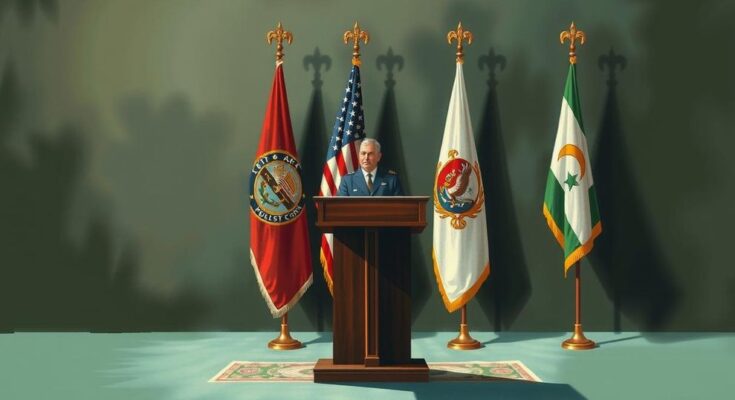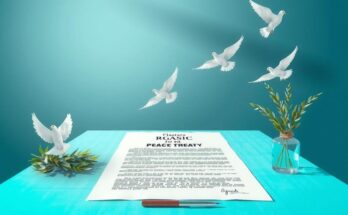In reaction to U.S. airstrikes on Houthis, Iran’s Supreme Leader Khamenei condemned the actions as proof of U.S. panic about growing regional resistance. Tehran maintains the Houthis’ independence from Iranian influence. The U.S. strikes increase regional tensions amid ongoing Houthi attacks; calls for diplomatic solutions are emphasized by analysts.
Iran’s Supreme Leader, Ayatollah Ali Khamenei, has publicly criticized the recent U.S. airstrikes targeting Houthi rebels in Yemen, asserting that the U.S. is in a state of “panic” due to the increasing regional resistance. Khamenei emphasized that the strikes serve as evidence of the Houthis’ growing power, suggesting that ultimately, Yemen will achieve victory. Tehran has dismissed U.S. warnings regarding its support for the Houthis, claiming the group operates independently.
The U.S. strikes are a notable escalation amid ongoing Houthi attacks on shipping in the Red Sea, which have adversely affected global trade. This military response by the U.S. further complicates already heightened tensions with Iran, especially regarding the Iranian nuclear program. Khamenei pointed out that the military actions reflect a fear among the U.S. and its allies about the increasing strength of resistance movements in the region.
Tehran maintains that the Houthis function autonomously despite allegations of armament and intelligence provision from Iran. Iranian Foreign Minister Abbas Araghchi rebuffed Trump’s warnings, asserting that the U.S. has no authority to dictate Iranian foreign affairs. Furthermore, Iran’s Revolutionary Guard Corps Commander, Hossein Salami, reiterated that Yemen is a free nation with its own policies, underscoring its independence.
The U.S. executed targeted airstrikes in several cities including Sanaa, Taiz, and Dahyan, and officials have indicated that these actions also serve as a warning to Iran. The strikes were reportedly more aggressive than those previously authorized by the Biden administration. Trita Parsi, of the Quincy Institute for Responsible Statecraft, remarked that escalating attacks are unlikely to establish peace, suggesting a ceasefire as a more effective resolution to prevent Houthi actions against shipping lanes.
In reaction to the situation, Araghchi stated that the U.S. government cannot dictate Iranian policy, highlighting the conclusion of that era in 1979. President Trump defended the airstrikes while cautioning Iran, affirming that accountability would follow any hostile actions towards the U.S. Furthermore, Parsi identified the lack of vital U.S. interests justifying the bombing campaign, advocating that the focus could be more constructively placed on resolving the war in Gaza to stabilize maritime security.
With the conflict escalating through ongoing U.S. airstrikes and persistent Houthi actions against vessels in the Red Sea, the situation remains fraught with potential tensions. Iran’s diplomatic maneuvers at the United Nations may significantly impact the upcoming developments surrounding this crisis.
In summary, Ayatollah Khamenei’s remarks reflect Iran’s strong condemnation of U.S. military actions against the Houthis and emphasize Tehran’s stance on their independence. The escalation of U.S. airstrikes raises tensions significantly, particularly concerning geopolitical dynamics in the region. As the situation unfolds, both nations’ diplomatic strategies and military engagements will be critical in shaping the future course of the conflict.
Original Source: www.newsweek.com




